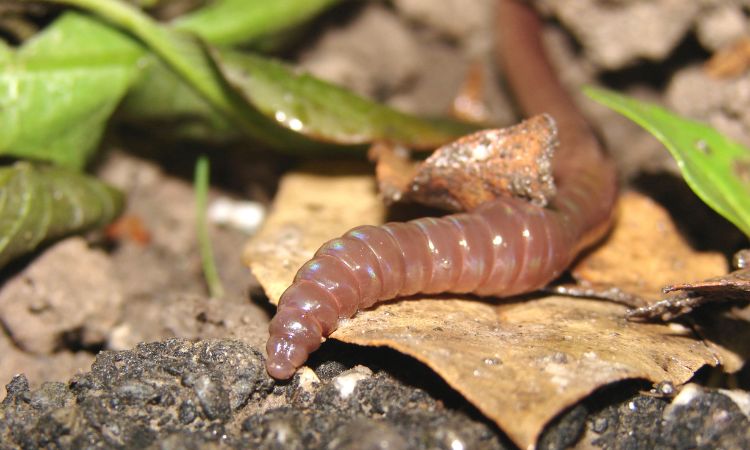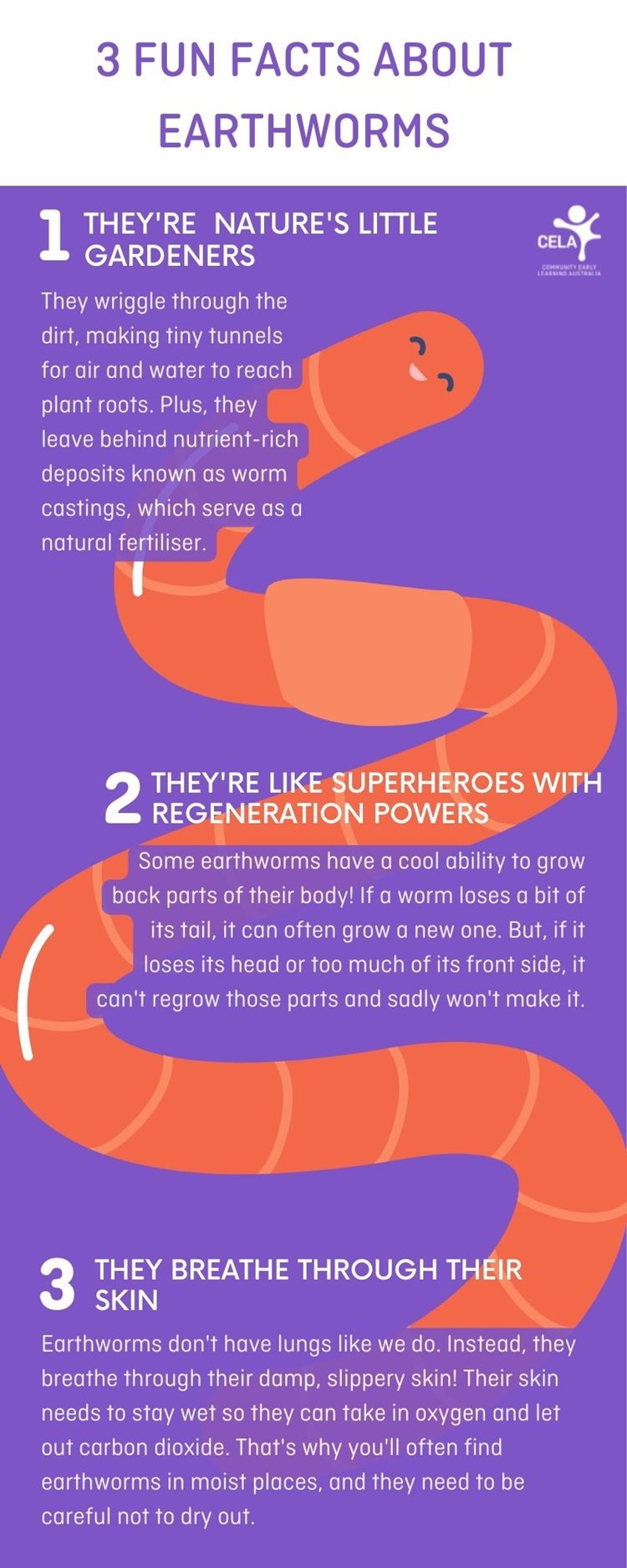Updated May 2023
Let’s begin by taking the ‘yuck’ out of worms and gaining an understanding of how important these animals are to a healthy eco-system.
While there are many different species of worms, we can categorise all worms that live in soil, including worm farms and compost bins, as earthworms.
What children can learn from earthworms in an early education space
Worm farms provide a unique opportunity for children to delve into the fascinating world of these little eco-warriors. Earthworms eat soil, organic matter, and food scraps, breaking down this matter into rich garden fertilizer. They create tunnels in our soil to enable water, air, and nutrients to circulate, keeping our earth healthy.
Maintaining a worm farm in an early education and care setting is a simple and efficient method for recycling food waste. Adaptable to both large and small spaces, worm farms can be comfortably housed indoors. Moreover, it's easy to scale the number of worm farms to accommodate your specific needs.
A worm farm has many environmental benefits, including recycling food scraps, minimizing food waste that goes to landfill, and creating natural garden fertilizer. Through hands-on exploration and observation, children can learn various aspects of worm ecology, life cycles, and their role in maintaining a healthy environment:
Worm anatomy
- Worms are invertebrates, and don’t have arms or legs—they use their muscle segments (annuli) and fine hairs (setae) on their body to move along. Using a magnifying glass to take a closer look, you can see the muscle segments along the worm’s body and how they use these to move along.
- Worms don’t have eyes, ears or a nose—they use vibration to sense danger.
- Worms don’t have teeth—they have a gizzard just like birds. The gizzard is used to grind up foods. Eating soil and adding some crushed eggshells to your worm farm helps this process.

Life cycles
- In a worm farm you can observe the complete life cycle of the worm—from capsule (egg), and young worm to adult.
- What does the worm capsule look like? It looks like a tiny golden grape seed. It feels like you have discovered gold when you find them as it means more worms and a healthy worm farm!
Environmental benefits
-
Recycling food scraps, creating something new from something old. When worms recycle food they change this into highly nutritious soil for our garden.
-
Reducing waste that goes to landfill is important in minimising air pollution (methane gas) and water pollution (leachate).
Life skills and responsibility
How worms create natural fertilisers
-
Worms make two products for our garden: Vermicast (aka Worm Poo) and Worm Leachate (aka Worm Tea, Worm Wee or Worm Juice).
-
These products are abundant in beneficial microorganisms and enzymes that support the quality and structure of your garden soil.
-
Earthworms in our garden soil distribute these nutrients as they tunnel through the soil.
-
If we have a worm farm we can collect the vermicast and liquid adding this to the top 10cm of our garden soil to regenerate and feed the soil.
Note on how to be careful with worms:
- Please remember that worms are living things just like us so handle with care.
- When looking at a worm up close or handling them remember that they are sensitive to light and heat, so minimise their exposure and put them back in the soil as soon as possible.
- A worm will not grow back if it is cut in half, it will die.
- If you find a worm on a footpath, carefully help it find its way back to soil – worms love soil.
Michelle Carrick
Co-Founder/Program Director, Seed Harvest Spoon Education Foundation

About CELA
Community Early Learning Australia is a not for profit organisation with a focus on amplifying the value of early learning for every child across Australia - representing our members and uniting our sector as a force for quality education and care.